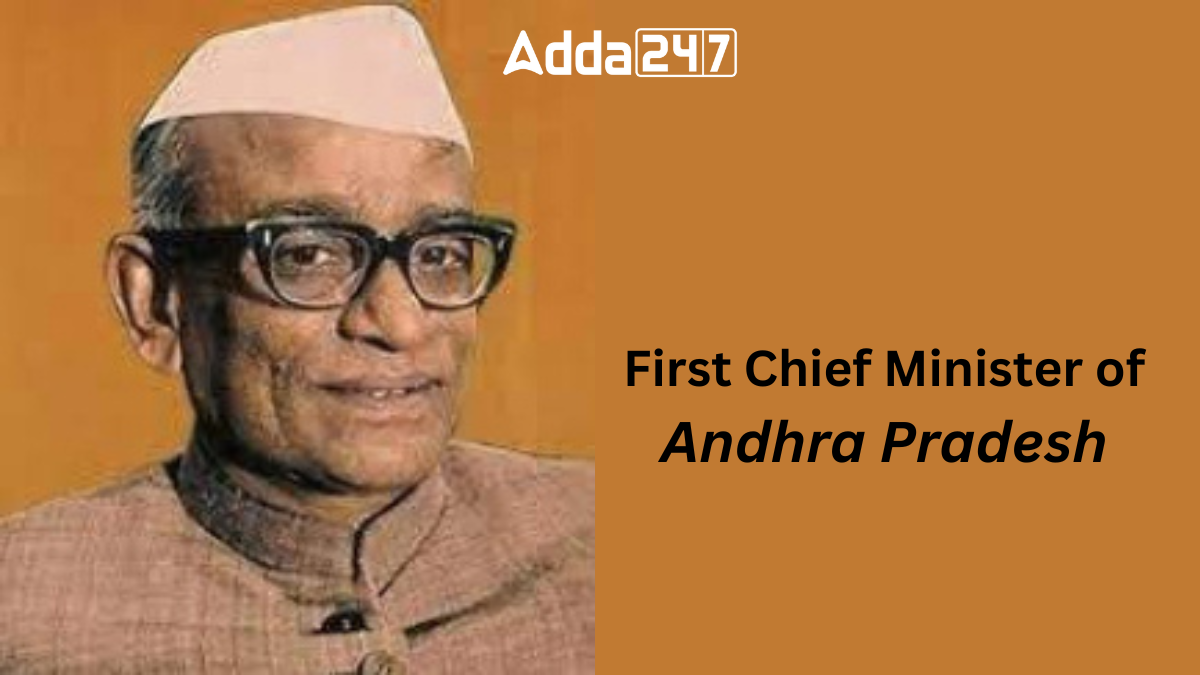Andhra Pradesh, a vibrant state nestled in the southern part of India, boasts a rich history of political leadership and cultural heritage. As one delves into the annals of its political evolution, one name stands out prominently – Neelam Sanjiva Reddy, the inaugural Chief Minister of Andhra Pradesh. His leadership, vision, and unwavering commitment to the people of the region laid the groundwork for the state’s progress and prosperity.
First Chief Minister of Andhra Pradesh – Name
Neelam Sanjiva Reddy, the eminent Indian politician, began his illustrious career with the Indian National Congress Party during the independence movement. He held pivotal roles such as Deputy Chief Minister of Andhra State and the first Chief Minister of Andhra Pradesh. Reddy also served as Speaker of the Lok Sabha and as a Union Minister before becoming India’s sixth President. His tenure witnessed significant contributions to rural development and marked the initiation of several key projects in Andhra Pradesh.
First Chief Minister of Andhra Pradesh – Key Details
| Name: Neelam Sanjiva Reddy |
| Date of Birth: 19 May 1913 |
| Place of Birth: Illur, Madras Presidency, British India (Present day- Andhra Pradesh) |
| Political Party: Before 1977 – Indian National Congress; After 1977 – Janata Party |
| Death: 1st June 1996 |
| Place of Death: Bangalore, Karnataka, India |
First Chief Minister of Andhra Pradesh – Early Life and Education
Neelam Sanjiva Reddy, born on May 19, 1913, in Illur village, Madras Presidency (now part of Andhra Pradesh, India), emerged as a prominent figure in Indian politics during the post-independence era. His early education at the Theosophical High School and later at the Government Arts College in Anantapur laid the foundation for his illustrious career.
Role of Neelam Sanjiva Reddy in the Indian Independence Movement
Reddy’s journey into politics began with his active involvement in the Indian independence movement. Inspired by Mahatma Gandhi’s call for freedom, Reddy participated in various protests and satyagrahas, facing imprisonment multiple times for his steadfast commitment to the cause.
Neelam Sajiva Reddy – Deputy Chief Minister of Andhra State
In 1951, Reddy was elected President of the Andhra Pradesh Congress Committee, marking the beginning of his political ascendancy. Subsequently, he assumed the role of Deputy Chief Minister of Andhra State, working alongside prominent leaders of the time.
Neelam Reddy as First Chief Minister of Andhra Pradesh
With the formation of Andhra Pradesh in 1956, Reddy became its inaugural Chief Minister, overseeing significant developmental initiatives and infrastructure projects. His tenure witnessed the initiation of crucial river valley projects, aimed at transforming the agricultural landscape of the region.
Congress President and Union Minister
Reddy’s influence extended beyond regional politics as he assumed key positions within the Indian National Congress. Serving as Congress President and later as a Union Minister in Lal Bahadur Shastri and Indira Gandhi’s cabinets, Reddy’s strategic acumen and commitment to public service shaped national policies and initiatives.
Neelam Reddy – Speaker of the Lok Sabha
Elected as a Member of Parliament, Reddy’s tenure as Speaker of the Lok Sabha was marked by notable reforms and contributions to parliamentary proceedings. His emphasis on parliamentary integrity and autonomy set new standards for legislative conduct and decorum.
Presidential Tenure of Andhra Pradesh’s First Chief Minister
In 1977, Reddy’s political journey culminated in his historic election as the sixth President of India. As President, he worked closely with Prime Ministers Morarji Desai, Charan Singh, and Indira Gandhi, navigating through tumultuous political landscapes and upholding the dignity of the highest office in the land.
First Chief Minister of Andhra Pradesh – Later Life and Legacy
Following his retirement from active politics, Reddy continued to inspire generations through his memoir, “Without Fear or Favour: Reminiscences and Reflections of a President.” His contributions to Indian politics and society were commemorated through various initiatives and institutions, reflecting his enduring legacy as a statesman and visionary leader.




 Which Country is known as the Land of Mo...
Which Country is known as the Land of Mo...
 Which Languages is known as the Mother o...
Which Languages is known as the Mother o...
 Which Country is known as the Highest Pr...
Which Country is known as the Highest Pr...








